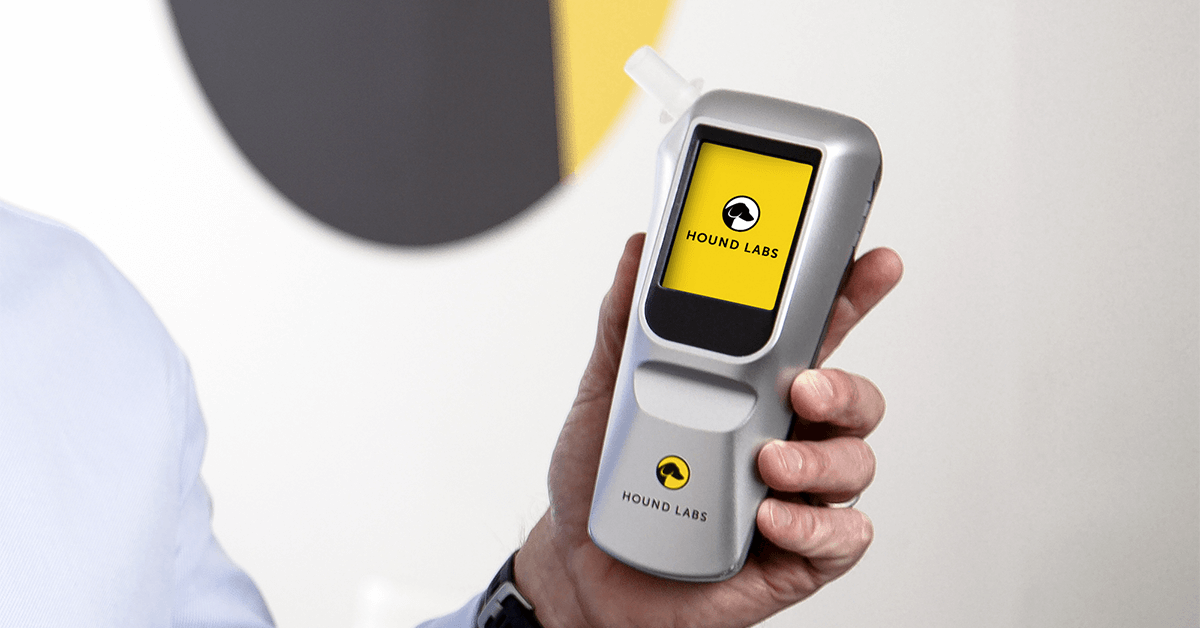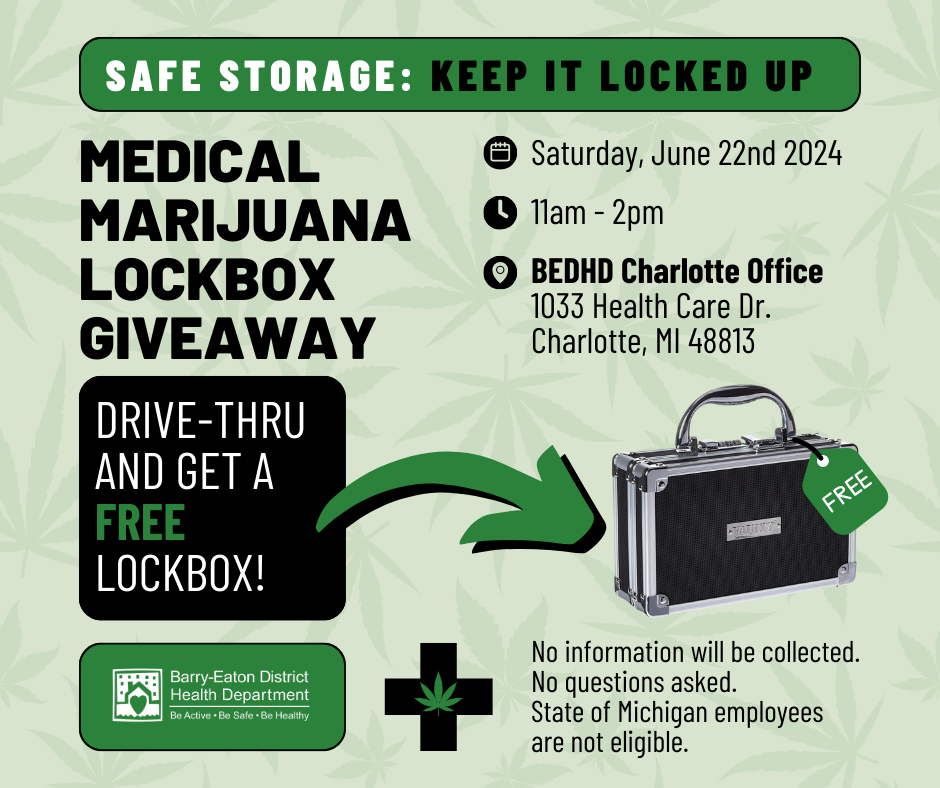Discussing Legal Cannabis With Your Children: Expert Tips for Michigan Parents

In Michigan, where adult-use cannabis has been legal since 2018, parents face the challenge of discussing cannabis in a way that is both informed and thoughtful. Establishing boundaries and fostering open, honest conversations about cannabis use has become a crucial task for families, especially as cannabis becomes more normalized in society.
One key piece of advice that experts offer parents is to approach these discussions with honesty—not only with their children but with themselves regarding their own cannabis use.
"And by being honest, that can also mean parents being transparent with themselves about how they use cannabis," said Christine Murray, a licensed social worker and child therapist.
Since Michigan legalized recreational cannabis for adults 21 and older, conversations about responsible use have become more important. The American Academy of Pediatrics continues to advise against cannabis use for anyone under 21, citing the impact of cannabis on the developing brain. According to Murray, the teenage brain is still forming crucial neural pathways, making it especially vulnerable to the effects of cannabis.
"People often think that cannabis is harmless, but they don't always understand the potential complications for a child or teen's brain development," Murray explained. "The brain undergoes significant changes during adolescence, so using cannabis at that age is very different from an adult starting after the age of 25."
For this reason, health professionals emphasize that conversations about cannabis should begin early. Parents should clearly communicate the risks of cannabis use and share any concerns they may have.
Even though cannabis is legally restricted to adults, its increasing presence in Michigan's communities can influence how children perceive it. Colleen Oakes, a prevention specialist, pointed out that young people often mirror the behaviors of the adults around them. This means that the way adults approach cannabis use—whether in moderation or excess—can shape a child's perception of what is normal.
"Parents are role models for their kids," Oakes said. "We encourage adults to be mindful of how they use substances like cannabis, alcohol, and tobacco around their children. Modeling responsible behavior is one of the most effective tools parents have."
In households where cannabis use is legal for adults, setting clear boundaries is crucial. Murray stressed that parents should secure cannabis products in a place where children and teens cannot access them. Additionally, if parents smoke cannabis, it's advised they avoid doing so in front of their children and change clothes afterward to limit exposure.
It's also important to explain to children the difference between adult cannabis use and the risks of underage consumption. By framing the discussion in terms of health and safety, parents can create a more productive and open dialogue.
When parents suspect their children may be experimenting with cannabis, Murray emphasized the importance of approaching the conversation with understanding, rather than judgment.
"When talking to teenagers, it's not about catching them doing something wrong. It's about understanding their experience and helping them navigate it," Murray said. "Parents can ask questions like, 'What makes you want to try cannabis?' or 'What are other ways you can cope when you're feeling stressed?'"
Some teens may use cannabis as a way to manage stress, anxiety, or other emotions. However, Murray cautioned against using substances as a coping mechanism, as it often only provides short-term relief while leading to long-term challenges.
"Teens frequently say, 'It helps me calm down,' or 'It helps me focus,' but just because something feels good in the moment doesn't mean it's good for your overall health," Murray noted.
Parents should be clear about their household's rules and expectations regarding cannabis use, reinforcing that it is not allowed for anyone underage. "Parents shouldn't hesitate to say that cannabis use isn't permitted in their home," Murray said.
For Michigan parents looking for guidance on how to handle these complex conversations, resources are available. Programs like the "Talk. They Hear You." campaign, provide support for families aiming to have honest, productive conversations with their children about substance use.
Concerns Over Cannabis' Impact on Mental Health Raised in Dickinson County

During a Dickinson County Board meeting on Monday, a mental health professional addressed potential negative effects associated with cannabis use. The intention was not to challenge Michigan's legalization of cannabis, but to shed light on associated risks.
Diedra Hinds-Springstroh, a nurse practitioner offering telehealth services for Northpointe Behavioral Healthcare System, emphasized the lack of medications available to treat cannabis addiction. Citing data from the Hazelden Betty Ford Foundation, Hinds-Springstroh noted that research suggests approximately 9% of cannabis users develop an addiction. This rate increases for individuals who begin using at a young age or consume cannabis daily.
Hinds-Springstroh referenced studies that link chronic cannabis use to mental health issues, including potential connections to psychosis. "It's something to put out there," she said, expressing concerns that the use of other substances could amplify these risks. She highlighted the surge in emergency room visits among youth due to overdoses from cannabis-infused edibles, such as gummies.
While acknowledging the medical benefits of cannabis, Hinds-Springstroh stressed the importance of recognizing the risks associated with recreational use. Commissioner Ann Martin, a member of the Northpointe Board who invited Hinds-Springstroh to present her concerns, pointed out that only a small portion of marijuana tax revenues is allocated to substance abuse prevention and treatment.
Michigan Employers and Medical Centers Adopt New Cannabis Breathalyzer

A new breathalyzer designed to detect recent cannabis use is being implemented by employers and offered at medical centers across Michigan. Developed by California-based Hound Labs Inc., this device is among the first to distinguish recent cannabis use from long-term usage.
"Our product aims to deter workday cannabis use," stated Tamanna Prashar, COO of Hound Labs, in an interview with the Detroit Free Press. "Unlike other tests that target habitual users, our breathalyzer ensures that individuals are not unfairly penalized for personal cannabis use outside of work hours."
Changes in Drug Testing Policies
Michigan employers have been revising their drug testing policies over the past few decades, particularly since the legalization of medical marijuana in 2008 and recreational cannabis in 2018. Recently, some companies have stopped testing new hires for marijuana to avoid missing out on talent in a competitive job market.
A significant challenge in marijuana testing has been the absence of a reliable method to detect recent use. Traditional drug tests using urine, saliva, and hair can detect THC for extended periods, but do not indicate current impairment. Despite this, the positivity rate for cannabis in the Michigan workforce has been rising, reaching 5.8% last year compared to 3.1% for the general U.S. workforce, according to data from Quest Diagnostics. This rate has steadily increased from 3.9% in 2019 to 5.2% in 2022.
The Role of Hound Labs' Breathalyzer
Prashar emphasized the importance of Hound Labs' device in the context of these rising positivity rates. "Michigan is crucial for us due to its significant manufacturing sector and the associated workplace safety requirements," she said.
Currently, there are over 25 Hound Labs breathalyzer devices in Michigan and about 120 nationwide. The tests are also available at all 19 Concentra medical centers in Michigan, including locations in Detroit, Warren, Southfield, Troy, and Allen Park. These tests can be used for pre-employment screenings, random tests, reasonable suspicion, and post-accident testing.
Prashar underscored the company's commitment to fair testing. "Laws and policies are evolving, but our core mission is to deter cannabis use during work hours and ensure employees are given the benefit of the doubt," she said.
How the Cannabis Breathalyzer Works
The testing process involves the donor breathing into a mouthpiece for about two minutes, similar to an alcohol breathalyzer. The breath sample is then preserved in a cartridge and sent to Quest Diagnostics. Negative results are typically returned within 24 hours, while non-negative results take between 72-96 hours.
New technology is expected to be released later this year or early next year, providing results within 30 minutes. Certified collectors from Hound Labs will administer these tests on-site, enhancing the efficiency and convenience of the process.
Tackling Rising Underage Cannabis Consumption in Berrien County

The Berrien County Health Department has launched a new campaign aimed at curbing the rising trend of underage cannabis use in the area. With targeted ads planned for multiple social media platforms, the department is reinforcing the message that cannabis use is illegal for individuals under the age of 21. The campaign highlights the risks associated with early cannabis use, including the potential for addiction and exacerbation of mental health issues.
Recent data from the 2021-2022 school year reveals that 28% of high school students in Berrien County have experimented with cannabis. Officials believe these numbers have likely increased in subsequent years. Lisa Peeples-Hurst, the Public Health Promotion and Prevention Supervisor at the Berrien County Health Department, emphasized the importance of addressing underlying issues rather than using substances as a coping mechanism. "The real issues that may be occurring still need to be tackled once the high wears off," Peeples-Hurst said. "It's crucial to educate students and parents about the heightened mental health component."
A significant concern is the source of cannabis for these minors. The health department suspects that while legalization has increased access, most underage users do not obtain cannabis directly from licensed dispensaries. Instead, they acquire it through other means. Peeples-Hurst mentioned that youth referred to the department through the juvenile court or pre-arrest diversion programs often obtain cannabis from non-commercial sources. "The good thing is we don't hear a lot about kids buying vapes," she noted.
Jorden Peterson, Floor Manager at the ReLeaf Center in Niles, confirmed that stringent checks are in place to prevent underage customers from entering their store. He acknowledged the possibility of adults purchasing cannabis for minors and emphasized the importance of ensuring that cannabis remains with the purchaser. "We are working hard to make sure this stuff stays with the person who buys it and leaves here properly," Peterson said.
Health professionals urge parents to discuss the risks of cannabis use with their children at an early age. According to Peeples-Hurst, the age of first substance use in Berrien County is alarmingly low, starting at just 11 years old. "We cannot wait until high school to get these messages out; we have to start sooner. We are currently reaching out to fifth graders in Berrien County classrooms," she stated.
"It Makes My Skin Crawl": Michigan's Urgent Battle Against Dangerous Vaping Additives

Michigan's Cannabis Regulatory Agency (CRA) is aware of the presence of potentially harmful medium-chain triglyceride (MCT) oil in some cannabis vaping products but does not plan to test for it until October. This delay comes despite evidence that inhaling MCT oil, derived from coconut or palm oil, can cause respiratory issues such as shortness of breath and lung inflammation.
The new testing requirements set to begin in October aim to detect and eliminate MCT oil from vaping products. MCT oil is often used to dilute THC distillate oil because it makes the oil easier for vaping devices to heat and convert into an inhalable aerosol. It is also a cheaper alternative to THC oil, increasing profits for producers. However, its use is currently prohibited in Michigan vaping products, though it is not yet tested for.
Cassie Coleman, chair of the National Cannabis Industry Association's scientific advisory committee, noted, "Unscrupulous producers might be adding MCT oil knowingly, while others might be doing so unintentionally through terpenes, which are permitted additives that enhance flavor and aroma."
David Egerton, Manager at Jackson-based Infinite Chemical Analysis Lab, highlighted that a sample test of various retail products earlier this year revealed nearly 10% contained MCT oil, with concentrations ranging from less than 1% to 20%. The CRA has not quantified the extent of the issue but believes that market self-regulation will phase out the use of MCT oil.
CRA spokesperson David Harns stated, "We've seen marijuana retailers voluntarily removing products with MCT oil from their shelves already, and we fully expect that this action will result in the rest of the industry doing the same prior to the October 1st deadline."
However, this approach has faced criticism. Coleman, who stopped consuming marijuana vaping products due to concerns over additives, questioned why the CRA's actions will take until October and why the issue hasn't been more widely communicated. "I'm glad they're doing something, but I'm a little confused why it's going to take until October and why it's being presented to industry insiders rather than the public."
Comparisons have been made to the past use of vitamin E acetate in nicotine and cannabis vaping products, which was banned after causing nearly 2,800 hospitalizations and 68 deaths in the U.S., including three in Michigan. Egerton noted that while the acute harm potential of MCT oil is not at the same level, there are still concerns.
When the vitamin E acetate crisis emerged, the CRA halted all sales of vaping products until they were retested. This has not happened with MCT oil, leading Coleman to call for immediate action. "If we have evidence that these products are contaminated, we should be able to stop it," she said. "We should be able to stop today products from being made and marketed to consumers."
Vaping cartridges accounted for about 20% of Michigan's marijuana sales last year, totaling nearly $585 million in revenue, with over $52 million in sales in May alone. While some industry insiders argue that immediate testing of all vaping products is infeasible, others stress the need for swift action.
Egerton called it an "impossible task" to require immediate testing but expressed hope that most processors would eliminate MCT oil in light of the new requirements. Robin Schneider, Executive Director of the Michigan Cannabis Industry Association, noted that several retailers are already proactively testing their inventory.
Producers are required to submit their product formulations to the CRA, including only FDA-approved inhalation additives or cannabis-derived ingredients. However, until October, consumers have no foolproof way to verify that their vaping products are free from MCT oil. Lower THC concentrations can be an indicator, but Egerton pointed out that MCT oil is often used in such small amounts that it is indistinguishable from other products.
The CRA aims to have a new state-run lab operational by the end of the year, which will enhance accountability and public protection. CRA Executive Director Brian Hanna emphasized, "From a public health and safety standpoint, the potential for adverse effects with MCT oil underscores the importance of safety guidelines for product development. Michigan's licensed marijuana businesses must prioritize respiratory safety when formulating or using inhalable products, opting for ingredients thoroughly evaluated for their compatibility with lung health."
Advocating for Stricter Regulations on Cannabis Vaping Additives
The ongoing issues with harmful additives in cannabis vaping products highlight the need for more stringent regulatory measures. Instead of merely testing for specific banned substances like MCT oil or waiting for harmful effects to emerge, regulators should implement a proactive approach by establishing a comprehensive list of approved additives. Only ingredients on this list, verified for safety through rigorous testing, should be permitted for use in vaping products.
The transition from vitamin E acetate to MCT oil illustrates a troubling pattern. As one harmful substance is identified and banned, businesses may simply switch to another, potentially equally dangerous, additive to cut costs or enhance product performance. This reactive regulatory stance leaves consumers vulnerable to unforeseen health risks.
Regulators should prioritize consumer safety by banning the use of any additives in cannabis vaping products until they have been thoroughly tested and confirmed safe for inhalation. This preventative measure would not only protect public health but also ensure that producers adhere to higher safety standards.
Implementing a system where only pre-approved, safe additives are allowed would eliminate the loopholes that currently enable the use of potentially harmful substances. It would also shift the focus from chasing after the next dangerous additive to fostering a market that prioritizes consumer well-being. By taking these steps, regulators can prevent future health crises and maintain the integrity of Michigan's cannabis industry.
Free Cannabis Lockboxes Available for Eaton County Residents

The Barry-Eaton District Health Department (BEDHD) is set to host a drive-through cannabis lockbox giveaway on Saturday, June 22nd from 11am to 2pm. This event will take place at the main entrance of the BEDHD Charlotte Office, located at 1033 Health Care Dr. Charlotte, MI 48813. Residents of Eaton County can drive up to receive a free cannabis lockbox, with no questions asked and no personal information collected. It is important to note that State of Michigan employees are not eligible for this giveaway.
This initiative is funded through a grant from the Michigan Department of Licensing and Regulatory Affairs, Cannabis Regulatory Agency, via the Marihuana Operation and Oversight Grants for Counties for Eaton County. The Michigan Medical Marijuana Program (MMMP), which is part of the Cannabis Regulatory Agency, administers the Michigan Medical Marihuana Act passed by voters in 2008. Additionally, the Barry County Substance Abuse Task Force (BCSATF) is also a recipient of these grants for Barry County.
Even though medical and recreational cannabis are legal in Michigan, it remains crucial for community members to secure their cannabis to prevent accidental access. Lockboxes are an effective way for adults to keep cannabis products out of reach of children and pets, who are at risk of adverse health effects from accidental ingestion. A national study published in the journal Pediatrics highlighted a sharp increase in such incidents, with reported cases of accidental consumption of cannabis edibles by children under six rising from just over 200 in 2017 to 3,054 in 2021—a staggering increase of 1,375%. Utilizing cannabis lockboxes can significantly reduce these risks, ensuring community safety while supporting the medicinal use of cannabis in Eaton County.
For further information about cannabis, you can visit the BEDHD website at barryeatonhealth.org/marijuana. If you have any questions about the lockbox giveaway event or the Marihuana Operation and Oversight Grant, please contact Emily Smale using the information provided below.
Additionally, the Barry County Substance Abuse Task Force will be distributing lockboxes at another event on June 22nd, from 10am to 1pm, at the Barry County Community Mental Health parking lot located at 500 Barfield Dr. Hastings, MI 49058.



 Helpful Links
Helpful Links